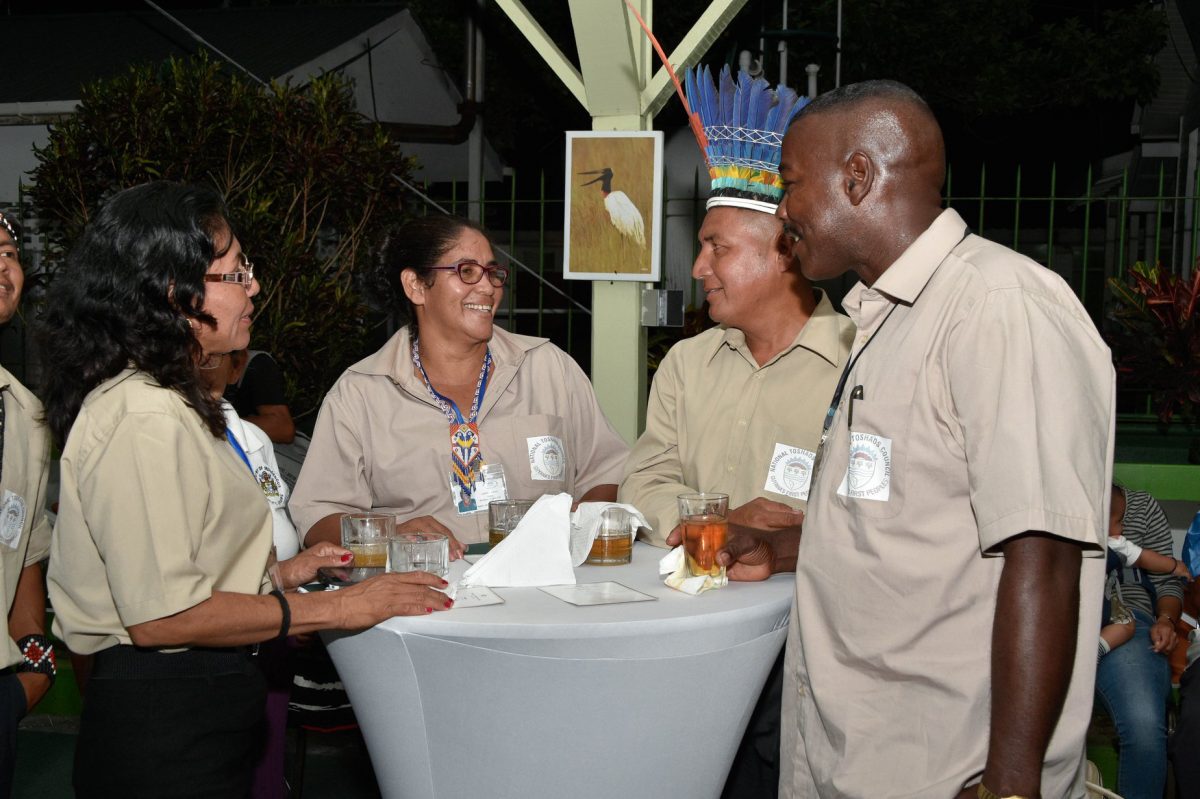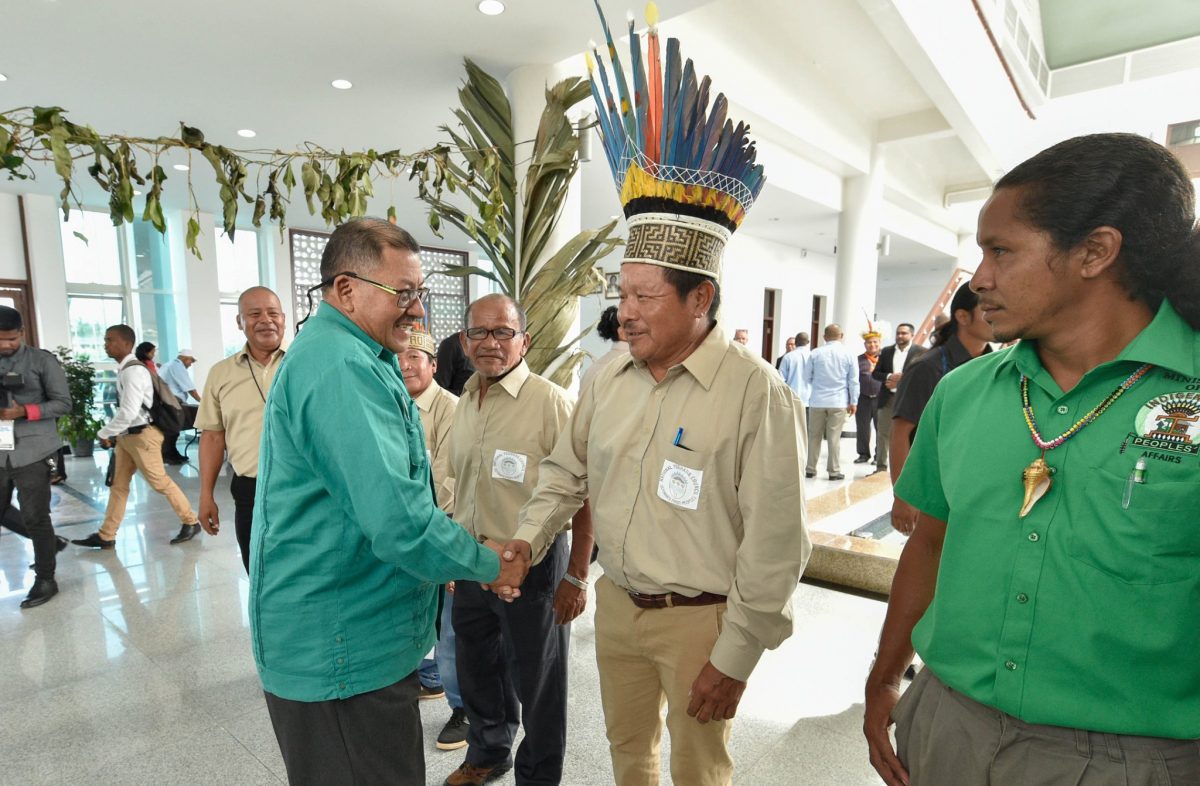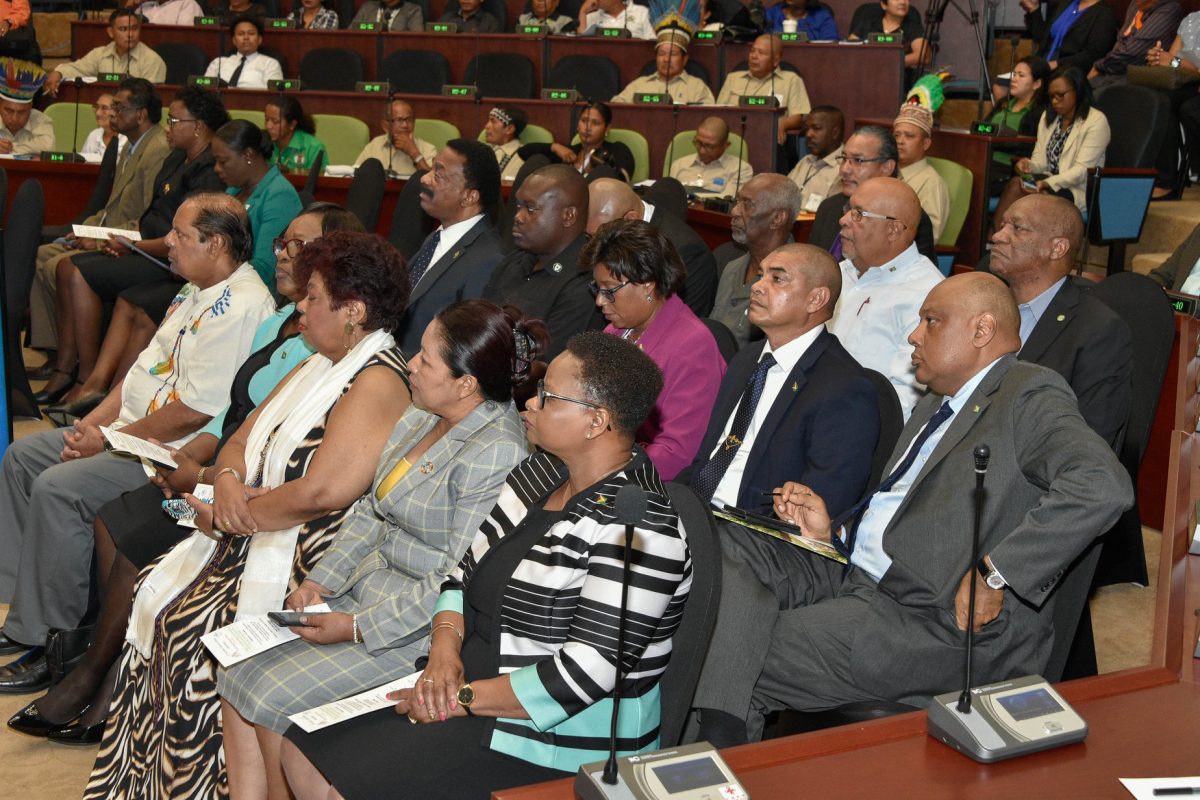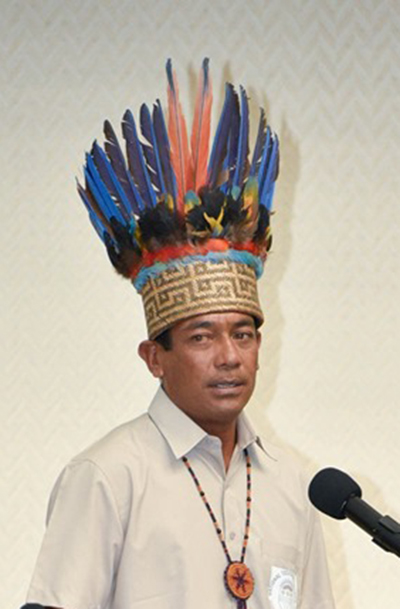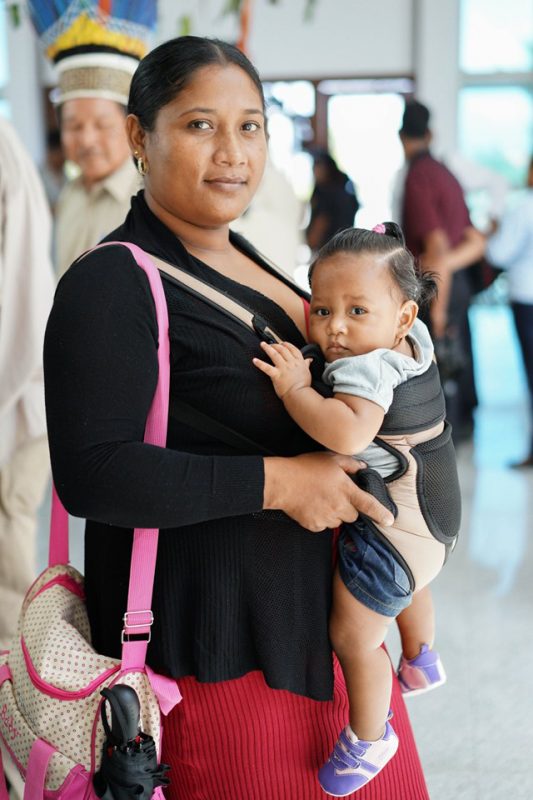Stressing the need for full ownership of their lands, National Toshaos’ Council (NTC) Chairman Nicholas Fredericks yesterday called for unity between government and the opposition and within the indigenous community as indigenous leaders gathered for a five-day national conference.
“Let us unify ourselves [so] that we shall not be torn apart,” Fredericks said at the opening of the 13th NTC Conference at the Arthur Chung Conference Centre, while stressing that the week should be marked by important decisions.
This call for unity became a refrain as each speaker who followed made a similar call.
“Toshaos, I urge you to continue to make representation on your people’s behalf…We are here for important discussions. Maximise the opportunities… Remember what you are here for. Focus and don’t be distracted. Have full interaction…,” he advised
Fredericks noted that over the last year coordination among the council’s leaders has been difficult because of the distance between villages but opined that newly installed Information Communication Technology (ICT) hubs should build a system which would make communication easier going forward.
He also welcomed the extension of the REDD+ funded Amerindian Land titling programme and noted that it was very important issue for indigenous communities. “Give us our lands. Give us full ownership of our lands and we will contribute to national development and protect the environment,” he said.
Fredericks later told Stabroek News that instead of having national organisations present their work during the week-long conference, the NTC would facilitate presentations from several smaller organisations, including the District Councils of regions 7, 8 and 9.
Fredericks explained that this is one of two new measures geared towards making the conference more effective and efficient than its predecessors.
The second measure will be a closed door meeting among delegates, which is scheduled for today.
“The session will just be with the Toshaos and leaders among ourselves going through the issues so when we start interact with the ministers we will have a collective and a comprehensive approach as to how we raise our issues,” he explained, while observing that in the past there has been confusion when as many as 10 toshaos might request the type of assistance or raise the same concern.
“We want to make it different, to make sure we are systematic in how we are interacting,” he stressed.
Hinterland advancement
Meanwhile, delivering the feature address was President David Granger, who acknowledged the role of indigenous peoples in development and stressed that human development is at the core of ensuring a “good life.”
“Development would be meaningless unless people’s lives could be improved… especially in the areas of education, health, livelihood and social protection,” he told those gathered.
Granger, who is functioning as a caretaker President in the aftermath of the December 21, 2018 motion of no confidence against his government, further explained that since indigenous peoples mostly inhabit the hinterland region, human development in Guyana must mean hinterland advancement, which has been partially achieved through better access to public education, public health, public information, public infrastructure, public security and social security.
Acknowledging that social ills, such as alcoholism, child labour, drug abuse, sexual abuse and teenage pregnancy still exist, the president said that they should not be allowed to derail progress on the path to the development.
“Eradication of social ills and elimination of extreme poverty requires co-operation between Regional Democratic Councils, the National Toshaos’ Council, the indigenous village councils and central government,” he stressed before reiterating that during the planned “Decade of Development” efforts will be made to use oil and gas revenue to finance development. General and Regional Elections are scheduled for March 2nd 2020.
Minister within the Ministry of Indigenous Peoples’ Affairs, Valerie Garrido-Lowe declared that the APNU+AFC government has done a lot in the hinterland before reminding the leaders that all of this work has been made possible through the use of taxpayers’ money.
“Unity is strength,” she said, while imploring leaders to “get down to the business of planning with the firm resolve to implement.”
“It is not enough to be called a leader, you have to lead your people to the development of the community and themselves… do not let anyone come into your community and preach division,” the minister stressed.
She noted that in observance of the International Year of Indigenous Languages, government has budgeted $30 million and developed a work plan to ensure languages are kept alive by supporting existing structures and programmes and piloting new initiatives for passing languages on to new generations.
One of these programmes, according to the minister, is the reproduction of existing material in the Warrau, Arawak and Carib languages, which are three of the most endangered languages.
Senior Minister Sydney Allicock, in turn, urged the toshaos to remember that they attend the conference on behalf of their communities to report on plans achieved and on plans for forward movement.
“We have been investing and when you invest you look forward to output,” he reminded, while adding that his expectation is that each leader consulted with their community while preparing for the conference.
“This forum allows for every village to have a voice…these opportunities should not be taken lightly,” he stressed before calling on each Village Council to develop a Village Improvement Plan which details village goals.
“As leaders you need to know if you are going to do anything you must have a plan…the village improvement plan is crucial, especially at this time,” Allicock noted, while referencing the burgeoning oil and gas sector.
The conference is being held under the theme “Guyana’s First Peoples United in the Promotion of the Green Economy through Preservation of our Languages, Lands and Rights.”
